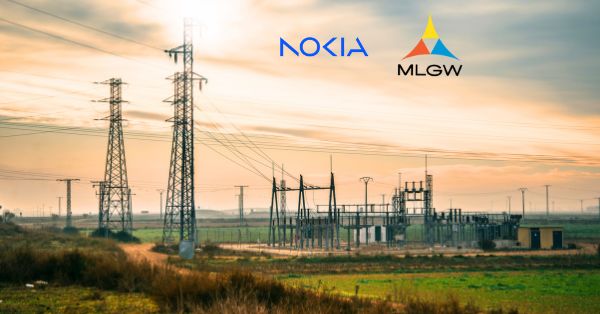With the rise of 5G phones and advancements in network technology, wireless customers are experiencing fewer issues, according to the J.D. Power 2024 U.S. Wireless Network Quality Performance StudySM—Volume 2, released today. This reduction in problems has led to improved consumer perception of reliability and increased network quality satisfaction.
Advancements in 5G Technology Drive Improved User Experience
“Despite a very public wireless service outage earlier this year, overall problems—especially loading speeds—have decreased,” said Carl Lepper, senior director of technology, media, and telecom at J.D. Power. “A focus on mid-band spectrum for 5G by the industry has lowered latency through balancing speed and coverage, resulting in a better experience for mobile phone users.”
The report underscores how the strategic deployment of mid-band spectrum has been crucial in reducing latency and improving the overall user experience. This balanced approach between speed and coverage ensures that consumers can enjoy faster loading times and more reliable connections, even during peak usage times.
5G Network Performance Across U.S. Regions
The study highlights several key findings regarding wireless network performance across different regions in the United States:
- Mid-Atlantic Region: Verizon Wireless ranks highest with a score of 8 problems per 100 connections (PP100). AT&T follows closely with 9 PP100.
- North Central Region: UScellular and Verizon Wireless tie for the highest ranking with 8 PP100, followed by T-Mobile with 9 PP100.
- Northeast Region: Verizon Wireless leads with a score of 7 PP100, outperforming the region average of 9 PP100.
- Southeast Region: Verizon Wireless again ranks highest with 8 PP100, followed by T-Mobile with 9 PP100.
- Southwest Region: AT&T, T-Mobile, and Verizon Wireless tie for the highest ranking with a score of 10 PP100.
- West Region: Verizon Wireless ranks highest with a score of 9 PP100, while AT&T and T-Mobile tie for second with 10 PP100.
In-Depth Analysis of 2024 5G Wireless Network Quality Study
The 2024 U.S. Wireless Network Quality Performance Study—Volume 2 is based on responses from 25,597 wireless customers. Carrier performance is examined in six regions: Mid-Atlantic, North Central, Northeast, Southeast, Southwest, and West. In addition to evaluating the network quality experienced by customers with wireless phones, the study also measures the network performance of tablets and mobile broadband devices. The study was fielded from January through June 2024.
For more information about the U.S. Wireless Network Quality Performance Study, visit J.D. Power.
Increased Satisfaction with 5G Network Quality
The study indicates that the reduction in network problems has led to a notable increase in consumer satisfaction regarding network quality. This trend is likely to continue as wireless carriers invest in new technologies and infrastructure improvements. Consumers have reported fewer issues with slow loading speeds and dropped calls, which has positively impacted their overall perception of reliability and quality.
The Role of Mid-Band Spectrum in 5G Deployment
The deployment of mid-band spectrum has played a pivotal role in the improvements noted in the study. Mid-band spectrum offers an optimal balance between speed and coverage, which is essential for the widespread adoption of 5G technology. This spectrum band allows for faster data speeds and more reliable connections, even in densely populated areas where network demand is high.
Regional Insights from the 5G Wireless Network Quality Study
Each region covered in the study presents unique insights into the performance of different wireless carriers:
- Mid-Atlantic Region: Verizon Wireless leads with the fewest reported problems, highlighting its strong network presence in the area. AT&T follows closely, indicating competitive service quality.
- North Central Region: The tie between UScellular and Verizon Wireless demonstrates that both carriers are effectively meeting customer expectations in this region. T-Mobile’s close performance also suggests robust competition.
- Northeast Region: Verizon Wireless’s leading score reflects its dominance in the Northeast, with customers experiencing fewer issues compared to the regional average.
- Southeast Region: Verizon Wireless continues to lead, with T-Mobile following. This indicates a high level of service quality and customer satisfaction in the Southeast.
- Southwest Region: The three-way tie between AT&T, T-Mobile, and Verizon Wireless showcases the competitive nature of the wireless market in this region, with each carrier providing high-quality service.
- West Region: Verizon Wireless maintains its lead, while AT&T and T-Mobile are tied for second, demonstrating strong network performance across the board.
Future Trends in 5G Wireless Network Quality
As 5G technology continues to evolve, the focus on mid-band spectrum and other technological advancements will likely drive further improvements in network quality and customer satisfaction. Wireless carriers are expected to continue investing in infrastructure to meet the growing demand for faster and more reliable connections.
Summary of 5G Wireless Network Improvements in 2024
The J.D. Power 2024 U.S. Wireless Network Quality Performance Study highlights significant improvements in wireless network performance, driven by the strategic deployment of mid-band spectrum and advancements in 5G technology. As a result, customers are experiencing fewer problems and higher satisfaction levels. The competitive performance across various regions underscores the ongoing efforts of wireless carriers to enhance service quality and meet consumer demands.
About J.D. Power
J.D. Power is a global leader in consumer insights, advisory services, and data and analytics. A pioneer in the use of big data, artificial intelligence (AI), and algorithmic modeling capabilities to understand consumer behavior, J.D. Power has been delivering incisive industry intelligence on customer interactions with brands and products for more than 55 years. The world’s leading businesses across major industries rely on J.D. Power to guide their customer-facing strategies. J.D. Power has offices in North America, Europe, and Asia Pacific. To learn more about the company’s business offerings, visit J.D. Power. The J.D. Power auto-shopping tool can be found at J.D. Power Auto.





























